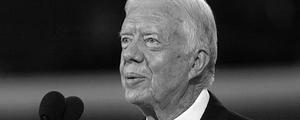WASHINGTON, D.C. -- As President Barack Obama led a media blitz Tuesday to push for his economic stimulus plan and mitigate the damage caused by the fresh exit of two high-level nominees, a sizable minority of Americans may have been watching with skeptical eyes. More than one-third (38%) do not think the media have been tough enough in their coverage of Obama, while nearly half (48%) say media coverage has been about right.
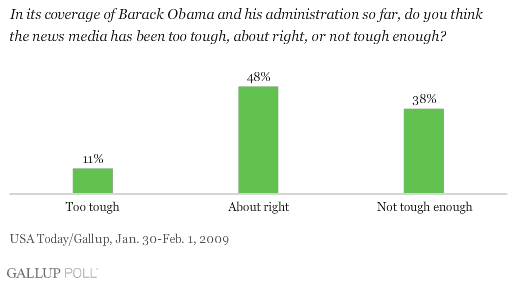
Rather than giving a speech or holding a press conference, Obama turned to the nation's networks to push for the passage of his economic stimulus package. Sharing the spotlight, however, were the tax-related departures of nominees Tom Daschle and Nancy Killefer, and a growing chorus of voices questioning the media's ability to objectively cover Obama, including a Monday New York Times article identifying former journalists who now work for the Obama administration.
A USA Today/Gallup poll conducted last weekend, before this round of interviews and the events cited above, reveals that views about media coverage of Obama break decisively down party lines. Two-thirds of Democrats see the coverage as "about right" while two-thirds of Republicans see it as "not tough enough." Independents are about evenly split between the two options. Fewer than one in five of any partisan group says coverage has been too tough.
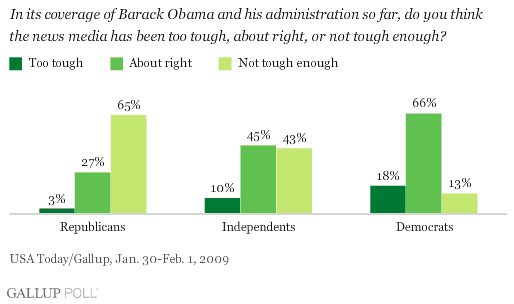
Not surprisingly, Americans' underlying views of Obama's job performance are also highly related to their views on this issue. Of the minority of Americans who disapprove of Obama's job performance, 84% say the media has not been tough enough on him. Of those who approve, 65% see the coverage as about right.
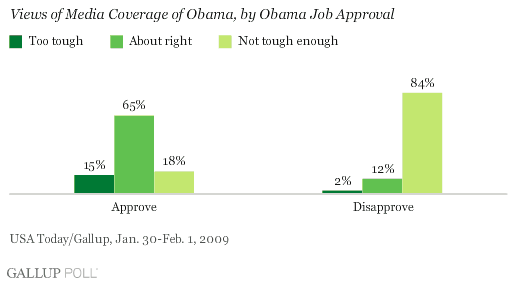
Gallup asked a follow-up question of the 38% of Americans who say the media have not been tough enough on Obama, gauging their level of concern that the media will not be able to fulfill their duties of providing oversight of the administration's actions. Among this group, 85% are at least somewhat concerned about this, including 61% who are very concerned.
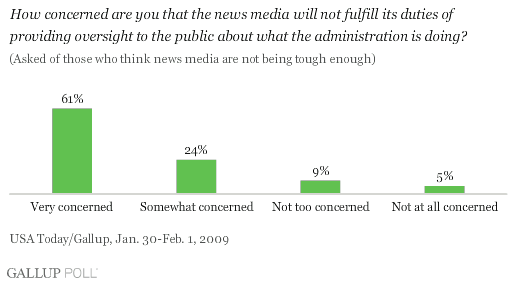
Bottom Line
Just two weeks into his presidency, Obama is facing both legislative and personnel challenges for which Americans will want answers. As both Obama and the media go about their work, they will do so under the watchful eye of the American public. To date, Americans have been relatively forgiving of both, but it remains to be seen how long either honeymoon will last.
Survey Methods
Results are based on telephone interviews with 1,027 national adults, aged 18 and older, conducted Jan. 30-Feb. 1, 2009. For results based on the total sample of national adults, one can say with 95% confidence that the maximum margin of sampling error is ±3 percentage points.
Interviews are conducted with respondents on land-line telephones (for respondents with a land-line telephone) and cellular phones (for respondents who are cell-phone only).
In addition to sampling error, question wording and practical difficulties in conducting surveys can introduce error or bias into the findings of public opinion polls.
